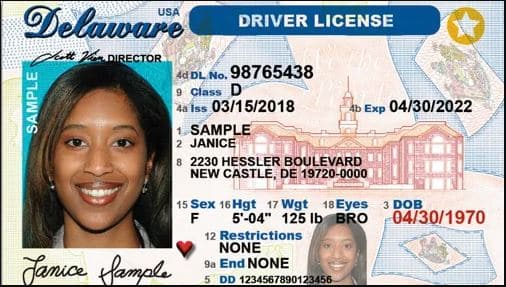Overview of Delaware ID scanning laws
Delaware has 3 laws which we consider relevant to ID verification, in addition to other laws which may related to age verification, identity verification, KYC, privacy, and biometrics.
Can you scan IDs in Delaware?
Yes. Delaware law does not regulate a business’s practice of scanning IDs or retaining information obtained from a scan.
There are some instances in which merchants are required to record information related to identity, such as scrap metal brokers and pawn brokers. ID scanning can improve the ease and accuracy of record-keeping in these scenarios.
Can you save data from a scanned ID in Delaware?
Yes. There are no current laws which limit or restrict saving data from a scanned ID in Delaware.
Does Delaware offer affirmative defense for ID scanning?
Yes. Delaware offers affirmative defense laws for alcohol sales, outlined in Delaware Code, Chapter 9.
What types of IDs does Delaware issue?
Delaware issues drivers licenses and state IDs, including REAL ID, CDLs and non-domiciled CDLs. The issuance of non-domiciled CDLs is dependent on the state’s ability to revoke, suspend, or cancel any non-qualified license holders. Delaware also offers a mobile drivers license (mDL), available in the Delaware Mobile ID app in the App Store and Google Play.
Individual Delaware ID verification laws
Age verification for alcohol sales
Delaware requires that businesses verify age, but does not require electronic scanning or verification for alcohol sales.
Age verification for cannabis sales
Delaware requires that businesses verify age, but does not require electronic scanning or verification for cannabis sales.
ID scanning for pawn shops and scrap metal
Delaware law requires pawnbrokers and secondhand dealers electronically record information, including the name and address of the seller.
Data privacy laws in Delaware
The Delaware Personal Data Privacy Act ensures state residents have the right to know what information is being collected about them, see the information, correct inaccuracies, and request deletion of their personal data.
Delaware Code requires businesses notify consumers if the consumer’s PII was exposed in a security breach.
If a commercial entity in Delaware seeks to destroy records containing PII, it must take reasonable steps to ensure the records are unreadable or indecipherable.



